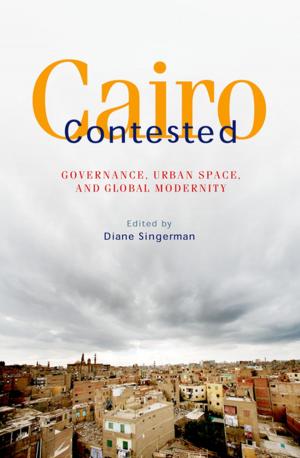| Author: | Harry E. Tzalas | ISBN: | 9781617972218 |
| Publisher: | The American University in Cairo Press | Publication: | February 1, 2004 |
| Imprint: | The American University in Cairo Press | Language: | English |
| Author: | Harry E. Tzalas |
| ISBN: | 9781617972218 |
| Publisher: | The American University in Cairo Press |
| Publication: | February 1, 2004 |
| Imprint: | The American University in Cairo Press |
| Language: | English |
The eleven short stories in this book take us back to an Alexandria past, the cosmopolitan city as it was experienced by the author in the years before, during, and following the Second World War. Against a backdrop of major events in Alexandria's history, from the halcyon days of the late 1930s, through the alarums of the War, to the 1952 Revolution and the dispersion of almost the entire foreign community of the city, Tzalas weaves his stories peopled with characters from his youth. These are ordinary people, people of different nationalities and faiths, but all Alexandrians, living side by side in the Great City. In describing each character with great sensitivity and perception, Tzalas succeeds not only in capturing the essence of the city itself, but in poignantly foretelling the fundamental changes and exodus that were to come. The events surrounding, among others, a German family caught in the city during the Second World War, three French monks, an old Greek musician, and a group of cultivated elderly Alexandrian gentlemen, are told with an affection often tinged with sadness. Through these characters, Tzalas tells the story of everyday lives caught up in the turbulent currents of history and the transformation of a beloved city the end of an era. Each of the eleven stories is accompanied by an evocative illustration by Anna Boghiguian.
The eleven short stories in this book take us back to an Alexandria past, the cosmopolitan city as it was experienced by the author in the years before, during, and following the Second World War. Against a backdrop of major events in Alexandria's history, from the halcyon days of the late 1930s, through the alarums of the War, to the 1952 Revolution and the dispersion of almost the entire foreign community of the city, Tzalas weaves his stories peopled with characters from his youth. These are ordinary people, people of different nationalities and faiths, but all Alexandrians, living side by side in the Great City. In describing each character with great sensitivity and perception, Tzalas succeeds not only in capturing the essence of the city itself, but in poignantly foretelling the fundamental changes and exodus that were to come. The events surrounding, among others, a German family caught in the city during the Second World War, three French monks, an old Greek musician, and a group of cultivated elderly Alexandrian gentlemen, are told with an affection often tinged with sadness. Through these characters, Tzalas tells the story of everyday lives caught up in the turbulent currents of history and the transformation of a beloved city the end of an era. Each of the eleven stories is accompanied by an evocative illustration by Anna Boghiguian.















